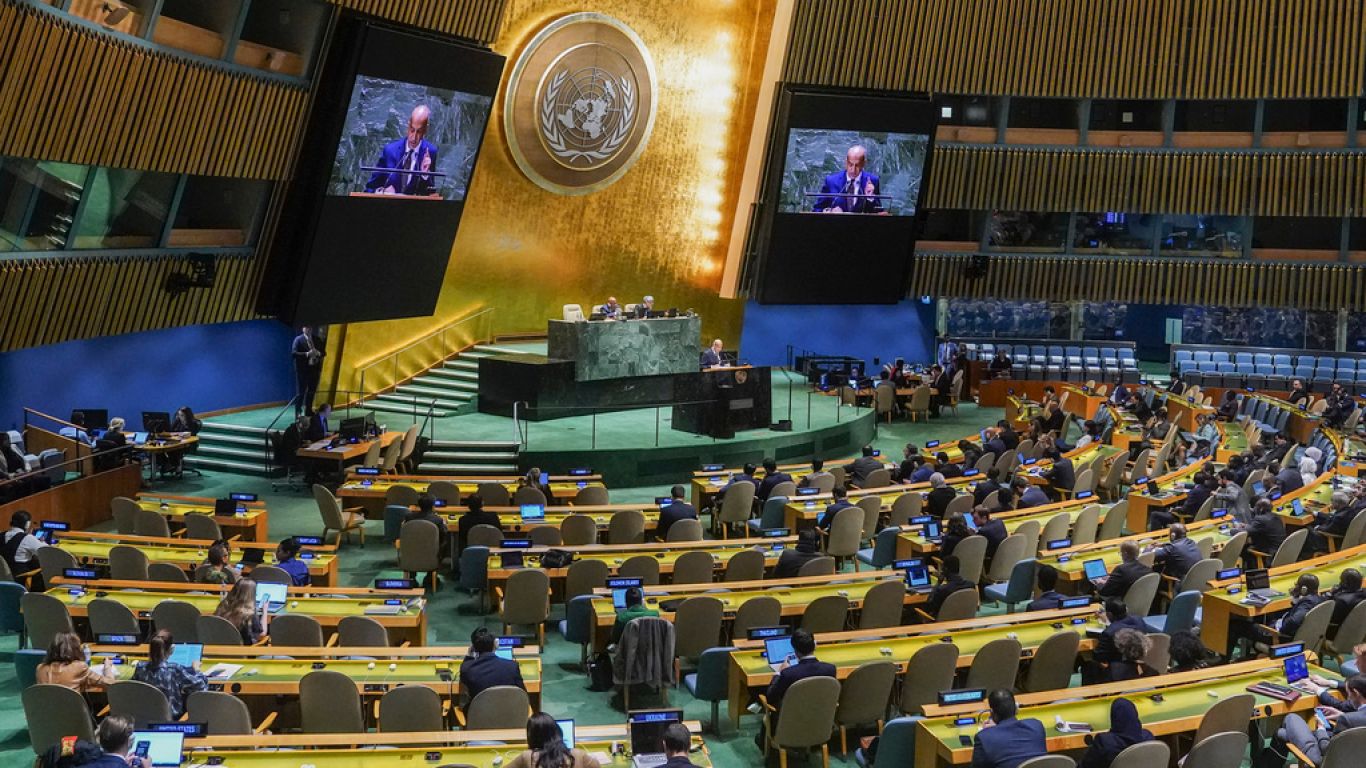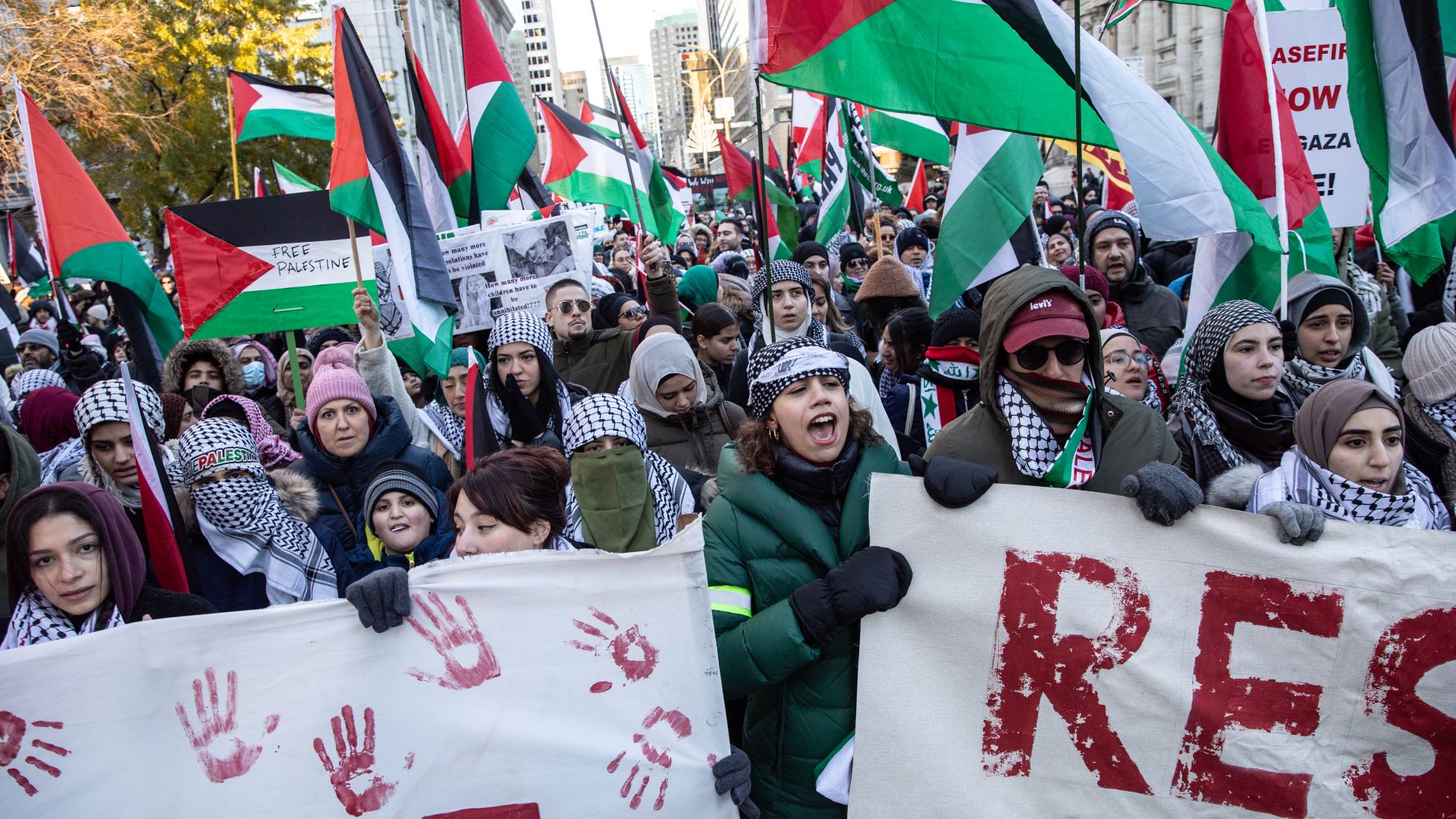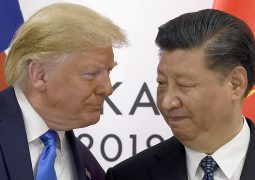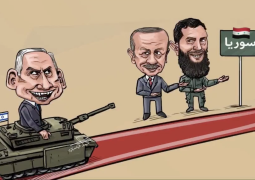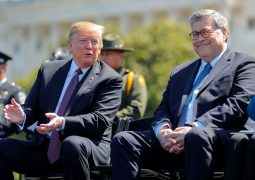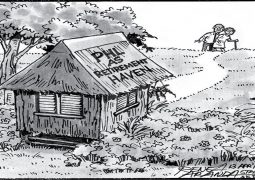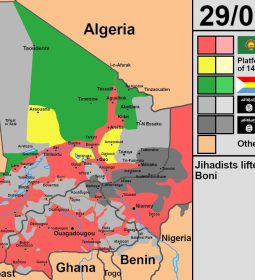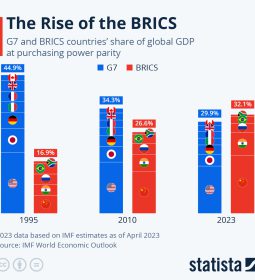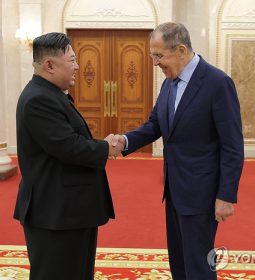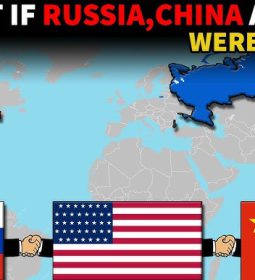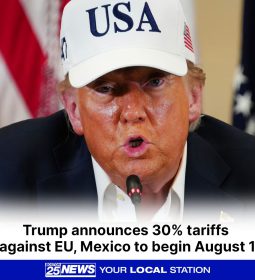Israel, Palestine and Canada’s ‘schizophrenic foreign policy’

More than a month into its bombardment of Gaza, the Israeli military issued a warning: Ground troops had surrounded the largest hospital in the Palestinian enclave, al-Shifa. A raid would be launched “in minutes”.
The impending siege of the Gaza City health complex sparked panic among the thousands of injured patients, medical staff and displaced Palestinians sheltering there.
But amid urgent international pleas to protect Gaza’s hospitals, much of the focus in Canada was on the tougher tone of Prime Minister Justin Trudeau.
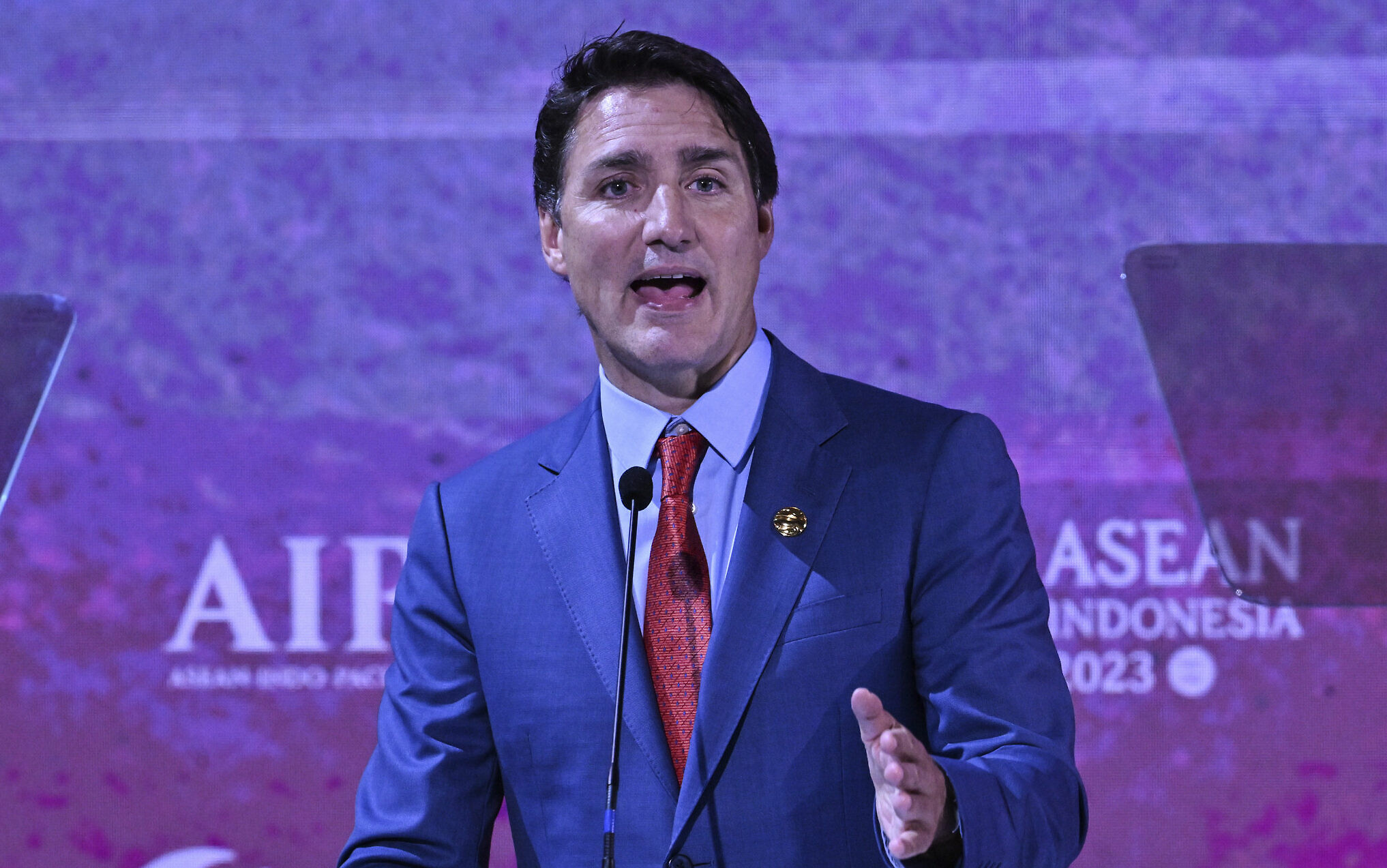
“I have been clear: The price of justice cannot be the continued suffering of all Palestinian civilians. Even wars have rules,” Trudeau said in a news conference on November 14, around the time the al-Shifa raid began.
“I urge the government of Israel to exercise maximum restraint,” he continued, offering his toughest comments since the war began. For weeks, Trudeau had been ignoring calls – and some of Canada’s largest protests in recent memory – demanding an immediate ceasefire in Gaza.
“The world is watching. On TV, on social media, we’re hearing the testimonies of doctors, family members, survivors, kids who’ve lost their parents. The world is witnessing this. The killing of women and children – of babies; this has to stop.”
The response from Tel Aviv was swift. Prime Minister Benjamin Netanyahu reacted publicly to Trudeau’s speech, arguing on social media that the Palestinian group Hamas, not Israel, was responsible for any civilian casualties. Netanyahu pointed to Hamas’s attacks in southern Israel on October 7, one of the events that precipitated the war.
Pro-Israel lobby groups in Canada echoed that argument, saying “the blood of dead babies – Israeli and Palestinian – is on Hamas” and accusing Trudeau of fuelling anti-Semitism.

In the days that followed, Canadian ministers sought to temper Trudeau’s comments.
“The prime minister, quite understandably, is concerned about innocent lives on both sides of that border,” Defence Minister Bill Blair told the Canadian network CTV. “We’ve also been crystal clear: Israel has the right to defend itself.”
The episode is one of many examples in recent weeks of what observers have described as Canada’s “schizophrenic” foreign policy when it comes to Israel and Palestine.
“Whenever [Trudeau] does show any mettle with respect to this, he invariably then steps back from what he said after any sort of criticism coming from either the Israel lobby in Canada or Israeli leaders,” Michael Lynk, a former United Nations special rapporteur on human rights in the occupied Palestinian territories, told Al Jazeera.
Unlike its powerful neighbour and Israel’s foremost backer, the United States, Canada says it aims to tread the middle ground in its policy on the Israeli-Palestinian conflict. It supports a two-state solution, opposes illegal Israeli settlements in the occupied territories and says international law must be respected by all parties.
But experts say Canada has two policies when it comes to the conflict: one on paper and one in practice.
They note that Canada has cast UN votes against its own stated positions and opposed Palestinian efforts to seek redress at the International Criminal Court, and argue that it has backed hardline, Israeli policies and failed to hold the country accountable for rights abuses.
“This government, as well as previous Canadian governments, have unfortunately had a blind spot with respect to Israel,” said Farida Deif, Canada director at Human Rights Watch.
She added that Canada’s stance has not changed despite the nearly two-month-long military campaign in Gaza, where bombs have struck hospitals, refugee camps and schools serving as shelters. More than 15,200 Palestinians have been killed.
“What we’ve seen with respect to Canada’s policy on Israel-Palestine is really a lack of coherence, confusion, and essentially not really engaging with the reality on the ground,” she told Al Jazeera. “And the reality on the ground that we’ve seen – that Palestinian organisations, Israeli organisations, international organisations have documented – is the reality of apartheid and persecution.”
So what drives Canada’s position?
Al Jazeera spoke to nearly a dozen human rights advocates, politicians, former officials and other experts about how foreign and domestic calculations influence Ottawa’s stance – and whether public outrage could shift its strategy.
Canada has had close ties to Israel for years. It recognised the country shortly after it was founded in 1948 and established an embassy there not long after.
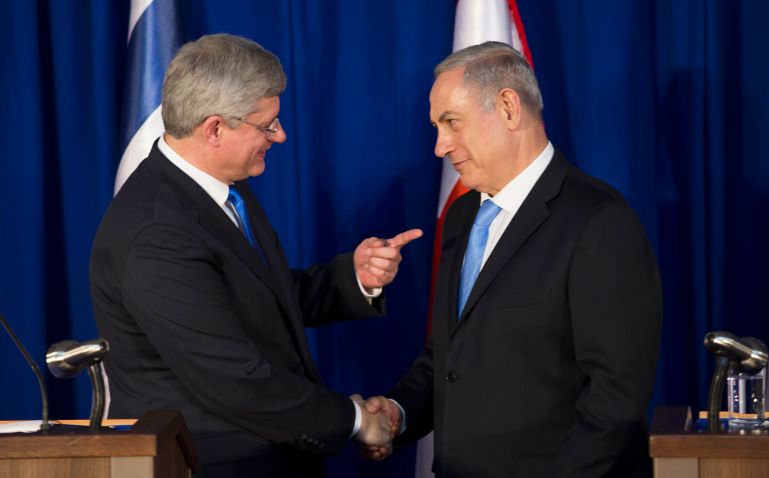
The two countries have had a free-trade agreement in place since 1997, with two-way trade totalling 1.8 billion Canadian dollars ($1.3bn) in 2021. Last year, Canada also exported 21.3m Canadian dollars ($15.7m) worth of weapons to Israel.
Some observers argue that the countries enjoy a natural affinity because of the similar ways in which they were created. Like Israel, Canada was built on the dispossession and forced removal of Indigenous peoples from their lands.
But relations truly flourished during the almost decade-long tenure of Conservative Prime Minister Stephen Harper. “Canada and Israel are the greatest of friends and the most natural of allies,” Harper said in a speech to the Israeli parliament, the Knesset, in 2014.
A year later, the Conservatives would lose to Trudeau’s Liberal Party in the federal elections, ending Harper’s tenure.
Yet, while Harper’s support for Israel was largely motivated by right-wing, Christian ideology, Trudeau and his more centrist government appear driven by political pragmatism.
Part of that pragmatism stems from Canada’s need to maintain good relations with the US, the country’s largest trading partner and most important ally, according to Peter Larson, chair of the nonprofit Ottawa Forum on Israel/Palestine.
“Canadian policymakers make a political calculation that coming out strongly or critical of Israel or supportive of the Palestinians is likely to get the Americans angry with us,” Larson said.
The government’s perspective, he said, was that Canada has “no control” over what happens in Israel and the occupied Palestinian territories. “We have no purchase there, we have no trade there, we have no military there. So why in the world would we get the Americans mad at us when we can’t really do anything anyway?”
Michael Bueckert, vice president of the advocacy group Canadians for Justice and Peace in the Middle East (CJPME), agreed. “Every time we see an indication of a policy position [from Canada], it’s closely following whatever the US says,” he told Al Jazeera.
He pointed out that Canada has continued to mirror US positions during the war in Gaza.
“It just seems like everything that Canada does is triangulated based on what the US and Israel are saying,” Bueckert said. “That’s more important to them than being aligned with all other members of the UN, for example, or every humanitarian agency, or a majority of Canadian public opinion.”
Yet sources with knowledge of the government’s inner workings say that domestic politics is the primary driver behind Canada’s position. One of the most important factors, they maintain, is the pro-Israel lobby.
Corey Balsam, national coordinator of Independent Jewish Voices Canada, an advocacy organisation, said the lobby groups have an “unmatched” ability “to be in the room” with political decision-makers.
“The lobby writ large is very well-resourced and influential and well-placed,” he said.
That has forced the Liberal government to weigh whether their decisions will spark a backlash among pro-Israel lobby groups, which could lose them votes, notably to their Conservative rivals, Balsam said.
“I don’t know exactly the calculations that they’re making, but these are the things that they pay attention to – votes in certain ridings [electoral districts], for instance. Also funds and fundraising for the party, I think this is a big factor for them.”
Lynk, the former UN special rapporteur and Canadian law professor, also said Ottawa’s position on the conflict relates in large part to “who has access to the corridors of power”.
The Trudeau government attacked Lynk’s UN appointment at the outset in 2016, as did pro-Israel lobby groups, which put out statements arguing that he had an anti-Israel bias. Green Party leader Elizabeth May and Lynk’s colleagues at Western University in Ontario came to his defence, but the damage was done.
“I tried to engage with as high a level of political and diplomatic decision-makers as I could. I didn’t get very far [in Canada],” he told Al Jazeera.
“What I was trying to do is say, ‘I’m showing you what international law says. I’m showing you what, in fact, your own foreign policy ends up saying … Why is your foreign policy so schizophrenic when it comes to Israel and Palestine?’ Doors weren’t open for me.”
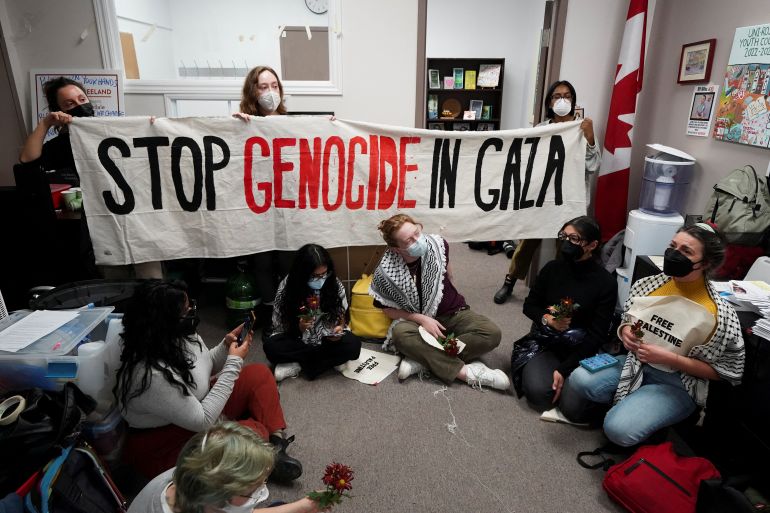
Several people Al Jazeera spoke to for this story described a pervasive fear of being accused of anti-Semitism for speaking out on Israeli rights abuses.
“There’s a certain weight [to anti-Semitism accusations] that is instrumentalised,” said Balsam.
“I think racism influences whose complaints are taken more seriously and whose pain is taken more seriously more broadly,” he added. “Complaints that invoke anti-Semitism – whether or not it is actually anti-Semitism – are taken seriously, whereas on the other hand, with Muslim and Arab groups or Palestinian groups and individuals, they can be much more easily brushed off.”
Prime minister’s office directs UN votes
During the Gaza war, nowhere has Canada’s position been more clearly on display than at the United Nations. After the UN Security Council failed to pass any resolution to address the situation, the focus shifted in late October to the General Assembly, where a non-binding motion was put forward to urge a humanitarian truce.
The measure passed with overwhelming support, but Canada abstained. It also put forward an amendment to the resolution to condemn Hamas.
“Unfortunately, Canada cannot support the text as it is currently proposed. We cannot act as the UN General Assembly without recognising the horrible events of October 7 and without condemning the terrorists behind them,” Canada’s UN ambassador, Bob Rae, said as he presented the amendment on October 27. It failed.
Peggy Mason, president of the Rideau Institute, an Ottawa-based nonprofit, said whereas Canada previously was seen as a bridge-building country, the amendment was a “bridge-weakening exercise”.
“And it was unconscionable, in my view, in the context of efforts to curtail an unfolding humanitarian crisis of horrific dimensions,” she told Al Jazeera.
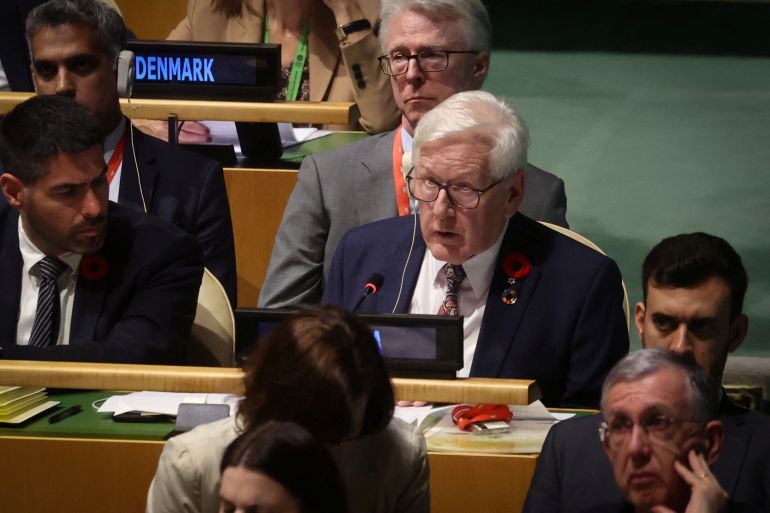
Canada came under even closer scrutiny when its UN mission voted against a draft resolution on November 9 condemning Israeli settlements in the occupied Palestinian territories as illegal – even though the government’s stated position is that the settlements violate international law.
In a statement explaining the vote, Canada said it was concerned by the number of resolutions that “unfairly single out Israel” at the General Assembly every year.
“Canada reiterates the importance of a fair-minded approach at the United Nations and will continue to vote ‘no’ on resolutions that do not address the complexities of the issues,” the statement read.
According to Bueckert of CJPME, no one is buying that excuse. “They’ve created this rationale for it, but good luck convincing Canadians of this, that these actions make any sense. That it makes sense to vote against things that you say you support,” he told Al Jazeera.
The resolution to condemn the Israeli settlements is among a number of Palestinian-related motions that come up for a vote at the UN General Assembly every year.
And the way Canada votes on these resolutions is dictated by the prime minister’s office, according to a source familiar with the matter, who spoke to Al Jazeera on condition of anonymity in order to speak freely.
“It’s unusual that the [prime minister] would directly intervene on an issue before the United Nations,” the source said. Usually, foreign policy files are handled by Canada’s foreign affairs department, known as Global Affairs Canada.
Lynk, the former UN expert, also told Al Jazeera that most foreign policy issues “are decided at Global Affairs and rarely ever make it to the prime minister’s office for yea or nay”. But matters related to Israel and Palestine are different. They are “determined and directed out of the prime minister’s office”, Lynk said.
Meanwhile, the anonymous source said Canada’s UN mission has faced direct pressure from pro-Israel lobbyists. That person described a meeting years ago in which a top lobbyist urged Canada to change its votes. The mission told the lobbyist no, but 24 hours after their meeting, the prime minister’s office directed the mission to vote the way the lobbyist had wanted.
“I thought it was outrageous, and I was angry and offended,” the source said. “It’s not the way to run a country. It’s not the way to run a foreign policy.”
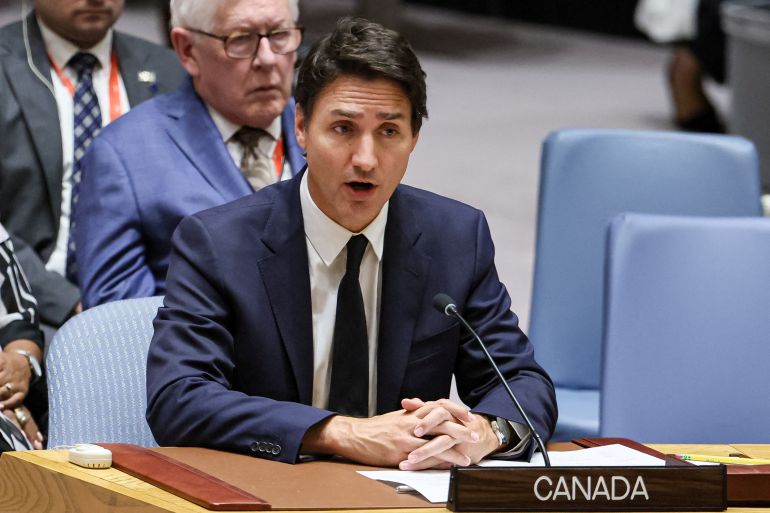
Trudeau’s office redirected Al Jazeera’s question on whether it handles Canada’s UN votes to Global Affairs Canada. Global Affairs Canada did not answer the question when pressed by Al Jazeera.
“When it comes to votes at the UN, Canada reiterates the importance of a fair-minded approach,” the department said in an emailed statement.
“We will continue to vote no on resolutions that do not address the complexities of the issues or address the actions of all parties. We also remain opposed to the disproportionate singling out of Israel for criticism. Canada rejects the suggestion that there is any kind of ‘double standard’ at play.”
Shifting political calculus
Many people Al Jazeera spoke to said there is a growing sense that the Canadian government’s position on the Israel-Palestine conflict could change in the face of shifting demographics.
“As Parliament gets more diverse and has connections to different communities, I do think that the calculus – in terms of, ‘Is this going to hurt me or help me electorally?’ – is shifting,” said Bueckert.
“It clearly hasn’t shifted enough to change Canada’s position in a meaningful way, but that is how we can make sense of the change in tone where Canada at least has to appear to care about what’s happening to people in Gaza.”
Since the war began, there also has been a split within the Liberal Party between politicians who staunchly support Israel and those calling for a ceasefire despite Trudeau’s own reticence to do so.

Less than two weeks into the Israeli military operation, Liberal MP Salma Zahid, who represents a district east of Toronto, Canada’s largest city, stood up in the House of Commons to urge Ottawa to call for a ceasefire.
“It’s very, very important that Canada be a strong voice to call for a ceasefire and make sure that we put an end to the killing of these innocent civilians,” she told Al Jazeera in a phone interview in November.
Asked about divisions within her own party, Zahid said the Liberal Party is a “big tent” and that all views can and should be heard. But she said she aims to represent her constituents, many of whom are Muslim Canadians.
“Some people have called me a terrorist sympathiser. That is sad to see that. But I will not stop because of these comments on social media or anything. I think it is really very important that I be there as a strong voice for the Palestinian people and also for the community,” Zahid said.
Uthman Quick, communications director at the National Council of Canadian Muslims, said a recent poll showed the disconnect between public opinion and the Liberal government’s positions.
The poll, released by the Angus Reid Institute on November 7, found that 30 percent of Canadians said they wanted an immediate ceasefire, compared with 19 percent who did not. Among Liberal voters, 34 percent supported a ceasefire compared with 12 percent who were opposed.
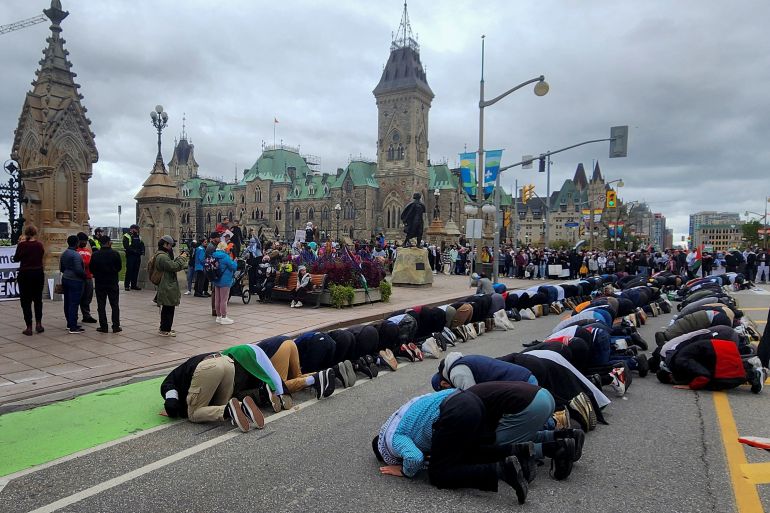
While Quick said the federal government’s tone has shifted since the war began, rhetoric alone is not enough. “For the amount of violence and killing that we’ve seen in Gaza, I think that warrants a more drastic approach from our government to really call for peace and for a ceasefire,” he told Al Jazeera.
He also said the government’s position could lead to political ramifications that extend beyond Arab and Muslim communities, as anti-war protests draw people of all backgrounds. “It’s not just a purely Muslim slash Palestinian slash Arab community divide on electoral fronts,” Quick said.
According to Deif at Human Rights Watch, Canada should be trying to pursue a “consistent policy” rooted in international law – and condemn war crimes regardless of who is responsible and who is the victim. It also should suspend weapons sales to Israel so long as “Israeli forces commit widespread, serious abuses against Palestinian civilians with impunity”.
“What we would like to see is Canada engaging on Israel-Palestine in the way that Ambassador Bob Rae engaged on Myanmar and the Rohingya crisis, in the same way that [Foreign] Minister [Melanie] Joly engaged on Ukraine following the Russian invasion,” she told Al Jazeera.
The consequences of inaction, she added, can be devastating.
“When powerful governments, whether it’s Canada or other Western states, turn a blind eye to the Israeli government’s abuses and serious violations of international humanitarian law, it certainly sends a message that it can continue to commit those acts.”
- Previous Putin to visit Saudi Arabia, UAE with Israel-Hamas war on agenda
- Next How Korean women are rejecting marriage while reimagining what family means in an increasingly lonely, ageing society


